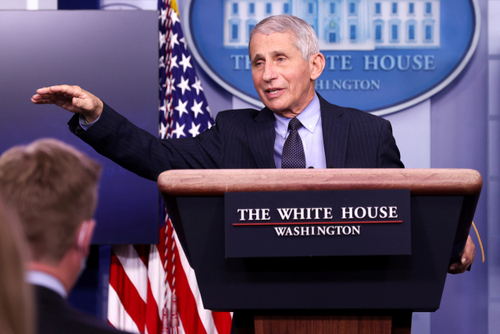“If you only get one dose, the efficacy is low… To prevent the evolution of mutations, you need to speed up vaccination.”
 viewer
viewer
Anthony Pouch, director of the National Institute of Allergy and Infectious Diseases (NIAID), said on the 1st (local time) that the mutant coronavirus found in South Africa is very likely to re-infect people who have already been infected.
Pouch appeared on CNN that day and said that if the mutation spreads from South Africa, even people who have already had a novel coronavirus infection (Corona 19) are very likely to be reinfected.
“If that (mutation) becomes dominant, even if it is the experience of colleagues in South Africa that have been infected with the original coronavirus, the probability of re-infection was so high that the previous infection did not seem to prevent re-infection,” said Pouch.
In the case of the South African mutation, it is judged that the immunity effect from the existing viral infection is virtually ineffective.
Director Pouch re-emphasized the importance of vaccination. “Although the protection against mutations decreases, (in vaccines) there is enough protection to prevent you from getting seriously ill, including hospitalization and death,” said Pouch. “So vaccination is key.”
Pouch also warned against vaccinating more people once at a live event held at the Washington Post (WP) on the 2nd.
“It is a dangerous point that the efficacy after a single dose is not as good as after a second dose,” he said.
Pouch emphasized that the idea of vaccinating as many people as possible before the mutation spreads is not entirely strange, but the limited supply of vaccines and the solution to the new variant of the virus is to expand the supply of vaccines, not single doses.
This includes vaccines from Pfizer and Modena already commercialized, as well as those from Johnson & Johnson, NovaVax and Oxford-AstraZeneca, which are still in development, he added.
“The best way to prevent the evolution of mutations is to suppress the replication of the virus in the community,” said Pouch. “This means we need to vaccinate as many people as possible as quickly as possible and as efficiently as possible. “He said.
Meanwhile, Oxford University in the UK announced that once AstraZeneca’s Corona 19 vaccine was given, the protection effect would be maintained at 76% for three months.
Oxford University published the results of clinical trials conducted on 17,000 adults aged 18 to 55 in the UK, Brazil, and South Africa in a paper that was not peer-reviewed, BBC Broadcasting and Reuters reported.
The researchers explained that the effect began on the 22nd day after the first vaccination of the AstraZeneca vaccine and was maintained until the 90th day, and that the second vaccination after 12 weeks increased the effect to 82.4%.
In contrast, if the interval between the first and second doses of the AstraZeneca vaccine was set to less than 6 weeks, the effect decreased to 54.9%.
Andrew Pollard, a professor at Oxford University, who led the clinical trial, added that based on these results, he supports the UK government’s guidelines to increase the interval between vaccinations for COVID-19 from 4 to 12 weeks.
Corona 19 vaccine is usually given once and then two times three to four weeks later, but the British government expanded the vaccination interval to give the vaccine benefit to as many people as possible.
/ Reporter Kihyuk Kim [email protected]
< 저작권자 ⓒ 서울경제, 무단 전재 및 재배포 금지 >
